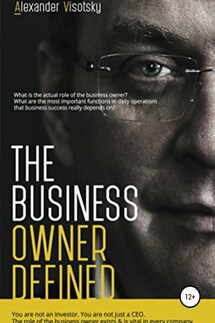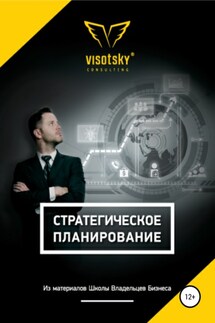One might consider this book to be quite unusual. It is not about how to start a business, or how to earn millions. And it is not for those who dream only about creating their own businesses. Instead, the target reader for this book is someone who has already created his or her own business and continues to participate in the daily activities of the company.
Those who have founded their own businesses often fall into the trap of being too involved in or personally performing the day-to-day operations of the enterprise, only to find they cannot escape—sometimes for a lifetime. They set up companies to achieve their dreams, yet years later they feel like hamsters spinning on a wheel. To some extent, any founder of a company knows that his or her main purpose is not to solve daily operational issues personally. They understand that in focusing on strategic matters, they will be able to contribute much more to the business than by simply making sales or managing technical issues. There is a reason why most small to medium-size business owners cannot escape the daily grind and thus continue to be more like clerks at a grocery store, never “growing out of their first pair of pants.” One might say they become victims of their own success.
People like to continue doing the things about which they feel competent. That makes sense. Success is usually based on a high level of competence, and that includes knowledge, skills, and experience. New companies are created by enthusiasts, the experts in their fields, and it takes years and considerable effort to achieve that high level of excellence in anything. Real pleasure and comfort come only when such competence is acknowledged and results in a loyal client and customer base, an increase in revenues, and public recognition of the brand. It's very rewarding to receive well-deserved recognition. This natural to want to enjoy one’s success, but therein lies the trap: There is no desire to change anything fundamentally.
In order for a company founder to rise above day-to-day operational activities, it is necessary to think and act in a completely new way. This means leaving one’s familiar comfort zone and going beyond one’s current levels of confidence and competence for a period of time. The first step is to figure out in which direction to move, and why. In order to be able to delegate operational management to a top-level executive and become one’s own business strategist, it is first necessary to understand what the job is all about.
This book describes the real job of a company owner as a professional activity with certain very precise responsibilities. My intention is to define these responsibilities in a practical and cogent way, since they are actually really simple by nature. While reading this book, you will likely find that you have already been carrying out many of these duties of a business owner intuitively and that all the progress you have made with your business has, in one way or another, been linked to the fact that you have acted in a correct manner. If this were not true, then only graduates of specialized business schools could create successful businesses, and that is not the case. The only difference between a professional approach and an intuitive one is that the professional clearly understands what he or she did right, and what was done incorrectly. Being informed allows for a conscious use of the experience.
I am sure that after reading this book you will have a clearer understanding of the most important duties of a business owner and will be able to do your job in a more informed way. This will give you the opportunity to place operational management into reliable hands and elevate your company to a whole new level.
Chapter 1. The Business Owner’s Role
Why do some companies grow large, their names and products familiar to everyone, while others just barely survive, lingering for years on the edge of bankruptcy? For example how was Apple able to create a cult, a fashion, an emotional commitment for its premium-priced products (before 1994, when the iPod and iPhone were not on the market) in a highly competitive market offering products at lower prices? How did they do it? And why is McDonald’s so successful? Its restaurants are considered an essential part of any civilized place in the world despite constant criticism by nutrition experts and challenges from competitors. It can be assumed that the reason for success is some amazing product that is available on the market and is so attractive to customers that it guarantees the company a bright future. The product














